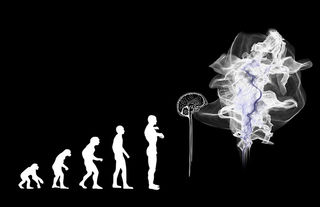Is Quantum Computing the Future of Artificial Intelligence?
This article was published as a part of the Data Science Blogathon.

Source: Forbes.com
Introduction
What is Quantum Computing?
Quantum computing is a style of computing that relies on the principles of quantum mechanics to function. In classical computing, data is encoded in bits that can be either 1 or 0.
On the other hand, Quantum computing uses qubits that can be both 1 and 0 simultaneously. This allows many calculations to be done simultaneously, so quantum computing is powerful. It’s also why it’s seen as the future of artificial intelligence and data science.
How is Quantum Computing Different from Classical Computing?
The essential dissimilarity between classical and quantum computing is that while classical computers use either 1 or 0, quantum computers use qubits, both 1 and 0 simultaneously. Quantum computing takes advantage of the features of quantum mechanics to process information using qubits.
These can represent a combination of 1 and 0, allowing for many calculations to be done simultaneously. Quantum computers are not subject to the same errors as classical computers due to their use of qubits. This makes them more reliable for sensitive applications, like those used in artificial intelligence.
This allows them to explore many different solutions to a problem simultaneously, so quantum computers are powerful for simulating complex systems and machine learning tasks.
What are the Advantages of Quantum Computing?
There are many advantages that quantum computing has over classical computing. One of the critical advantages of quantum computing is that it can solve problems much faster than classical computers.
This is because a quantum computer harnesses the features of both a particle and a wave, which allows it to explore many different solutions at once, which is called “quantum parallelism.”.
Additionally, quantum computers are not affected by noise and can function in extreme conditions, perfect for AI and machine learning applications. Another advantage is that quantum computers can overcome errors in traditional computing systems.
Finally, quantum computers can store and process large amounts of data, which is essential for artificial intelligence and machine learning models.
Drawbacks of Quantum Computing
Besides all its benefits and advantages, people are afraid to try quantum computing, and the reasons are valid. Due to its robust nature, it is exceedingly hard to engineer, build and program a quantum computer. It is no wonder how difficult it will be to train an AI model to detect objects in an image.
Due to its complex nature, quantum computers and programs are crippled by errors in noise, faults, and loss of quantum coherence. And as the number of qubits multiplies, the isolation of these qubits from their environment becomes extremely difficult to sustain, and decoherence is bound to happen that is bringing in a bunch of errors.
Hence, the characteristics that make quantum systems powerful also make them delicate and cause the whole system to fall apart.
Why is Quantum Computing the Future of Artificial Intelligence?

Source: Psychology.com
In classical computing, bits are either one or zero. However, a quantum bit or qubit can be simultaneously one and zero in quantum computing, which opens up a whole new realm of possibilities for computing power.
Quantum computers can crack problems much quicker than classical computers because they can try several solutions simultaneously. They’re also not constrained by the same limitations as classical computers, meaning they can solve currently impossible problems.
This makes quantum computing the perfect candidate for powering artificial intelligence. The vast amounts of data processed by AI systems require enormous computational power. Quantum computers have the potential to provide that power and thus enable AI to reach its full potential.
Real-life Applications
This section lets us see some real-life practical applications where quantum computing in AI can change the future.
1. Financial Services & Healthcare: This is one field where quantum computing, with the help of AI, is helping solve many complexities with its speed and specificity.
2. Solving Mathematical Problems: Many types of research are going on in maths, science, and history. With the help of quantum computers, it can be solved in a much lower period. For example, if a classical computer takes 10 years to solve a mathematical problem, quantum computers, with the help of AI, can solve that in less than a month.
3. Fraud Detection & CyberSecurity: With the help of AI algorithms, Quantum computers are helping agencies enhance their protection and increase the security on the internet.
Why is Quantum Computing still Unknown to Many?

Source: BostonGlobe.com
There are a few possible explanations for why quantum computing isn’t being discussed more in the AI and ML communities. One possibility is that people are unsure how to apply quantum computing to their work. Another possibility is that the potential applications of quantum computing are so vast and far-reaching that people are hesitant to get too excited about it until there’s a more concrete plan for how it will be used.
Conclusion
Quantum computing is a technology that is quickly gaining traction due to its potential applications in various industries. Despite this, there is a lack of chitchat around quantum computing and its role in the future of artificial intelligence.
Quantum computers can decode problems much faster than classical computers and can be used to model large-scale systems and molecules. They can also handle large amounts of data, which is essential for training artificial intelligence models. As quantum computing becomes more accessible, it will play a vital role in developing artificial intelligence and future applications.
Hope you enjoyed reading my article. If you would like to discuss this further, please comment below. Will be happy to have a fruitful discussion on it.
The media shown in this article is not owned by Analytics Vidhya and is used at the Author’s discretion.









Interesting post, thanks for sharing.
Very nice article Mrinal. Congratulations! I had read that scientists have already applied quantum computing to Computer vision successfully.